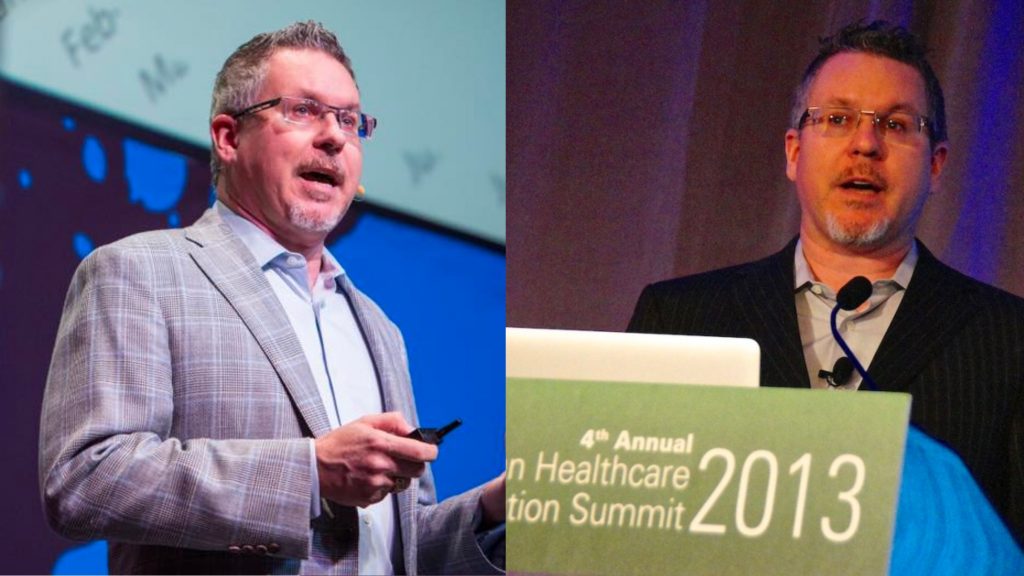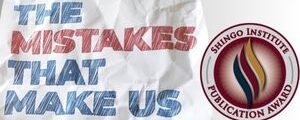Mark can deliver engaging and value-packed talks based on topics in his latest book The Mistakes That Make Us: Cultivating a Culture of Learning and Innovation.
Learn more about Mark’s speaking.
Mark can also teach and facilitate workshops on “psychological safety.”
Reviews are In!
“…captivating…”
See other feedback and reviews on Mark’s speaking
Speaking Samples and Highlights
Popular Keynote Talks & Panel Facilitation
Mark enjoys creating customized talks or presentations for your company, industry, and event. He’ll pull relevant stories and examples that are the best fit for your audience, whether that’s automotive, manufacturing, healthcare, software, and more. Mark can also tailor his work to the size of your company — large, small, or in between.
Panel Facilitation — My Favorite Mistake and Learning From Mistakes
Mark is not only an effective speaker; he’s also a skilled moderator and facilitator of panel discussions.
Keynote: Psychological Safety as a Foundation for Continuous Improvement
Mark’s keynote will explore the connections between Psychological Safety and Continuous Improvement, using examples from Toyota, KaiNexus, and other companies. Mark will explore how we can assess the current state of Psychological Safety in teams or across a broader organization. He’ll also discuss what leaders can do to help create conditions where employees feel safe enough to speak up about mistakes, problems, and improvement ideas. His latest book, available now, is titled The Mistakes That Make Us: Cultivating a Culture of Learning and Innovation.
“Thanks again for helping our team learn this morning. You did a great job tying together the concepts in an easily digestible and applicable fashion. I personally got a lot out of the discussion, and had several folks in the community reach out directly to me afterward to provide positive feedback on the session.”
Feedback:

“Thanks again for speaking to our Continuous Improvement Network today! You are a very knowledgeable speaker, and this is the most engagement we’ve had from the audience all year.”
A State Government Improvement Leader:
Keynote: The Mistakes That Make Us… Better
We all make mistakes, even the most successful people we know. Are people successful because they avoid mistakes or because they make sure to learn from them? Mark Graban thinks it’s the latter based on podcast conversations with corporate CEOs, athletes, entrepreneurs, and entertainers – and former Toyota employees.
Are we willing to admit mistakes to ourselves, let alone our colleagues, employees, or leaders? Do our organizations create a culture where it’s safe to talk about mistakes as a first step toward preventing future mistakes? Can we shift from blaming and shaming to building a culture of continuous improvement?
In this talk, you will learn and hear impactful stories and lessons about:
- Why it’s important to admit mistakes
- How to reflect on mistakes without being too hard on ourselves (or others)
- How to prevent repeating mistakes
- What key leader behaviors create a culture where it’s safe for people to admit mistakes
Keynote: When Being Right is the Wrong Strategy for Change
Presented at the 2018 KaiNexus User Conference and other events
Successful organizations have learned how to engage everybody in improvement and innovation. That’s easier said than done when leaders and change agents have bad habits, including pushing change on others from the top down or from a position of expertise. Having the “right” solution to a problem or the “right” strategy for an organization means nothing if you can’t get alignment and buy-in from others. In this keynote, Mark Graban shares personal stories and practical strategies for shifting your approach to change, combining proven methods used in multiple industries.
- “Great new info on Change Management… have a Masters on this topic…. still learned a lot.”
- “Very polished, self-aware, critical thinker.”
- “I really felt that his message was timely as many of us are just a few years in on our journey. It was great to hear the ‘expert’ tell us that it’s okay to not be an expert.”
